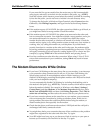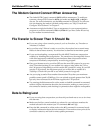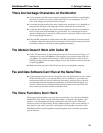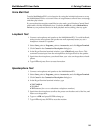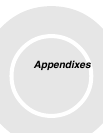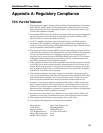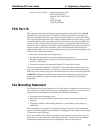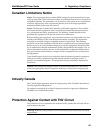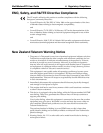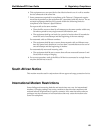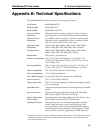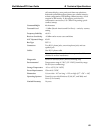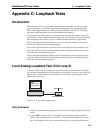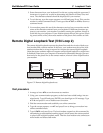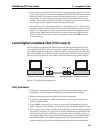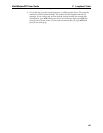
A Regulatory Compliance
59
MultiModemZPX User Guide
EMC, Safety, and R&TTE Directive Compliance
The CE mark is affixed to this product to confirm compliance with the following
European Community Directives:
• Council Directive 89/336/EEC of 3 May 1989 on the approximation of the laws
of Member States relating to electromagnetic compatibility;
and
• Council Directive 73/23/EEC of 19 February 1973 on the harmonization of the
laws of Member States relating to electrical equipment designed for use within
certain voltage limits;
and
• Council Directive 1999/5/EC of 9 March 1999 on radio equipment and telecom-
munications terminal equipment and the mutual recognition of their conformity.
New Zealand Telecom Warning Notice
1. The grant of a Telepermit for any item of terminal equipment indicates only that
Telecom has accepted that the item complies with minimum conditions for con-
nection to its network. It indicates no endorsement of the product by Telecom,
nor does it provide any sort of warranty. Above all, it provides no assurance
that any item will work correctly in all respects with another item of Telepermit-
ted equipment of a different make or model, nor does it imply that any product
is compatible with all of Telecom’s network services.
This equipment is not capable under all operating conditions of correct opera-
tion at the higher speed which it is designated. 33.6 kbps and 56 kbps connec-
tions are likely to be restricted to lower bit rates when connected to some PSTN
implementations. Telecom will accept no responsibility should difficulties arise
in such circumstances.
2. Immediately disconnect this equipment should it become physically damaged,
and arrange for its disposal or repair.
3. This modem shall not be used in any manner which could constitute a nuisance
to other Telecom customers.
4. This device is equipped with pulse dialing, while the Telecom standard is DTMF
tone dialing. There is no guarantee that Telecom lines will always continue to
support pulse dialing.
Use of pulse dialing, when this equipment is connected to the same line as other
equipment, may give rise to ‘bell tinkle’ or noise and may also cause a false an-
swer condition. Should such problems occur, the user should not contact the
Telecom Faults Service.
The preferred method of dialing is to use DTMF tones, as this is faster than
pulse (decadic) dialing and is readily available on almost all New Zealand tele-
phone exchanges.
5. Warning Notice: No ‘111’ or other calls can be made from this device during a
mains power failure.



